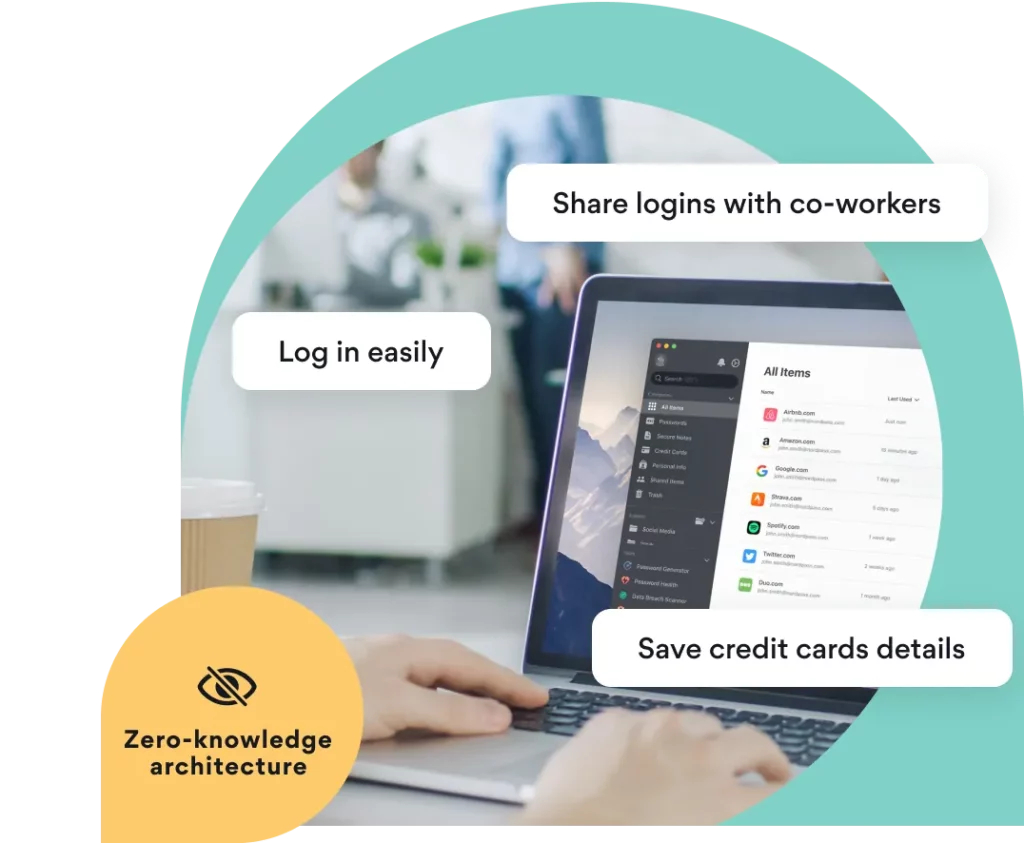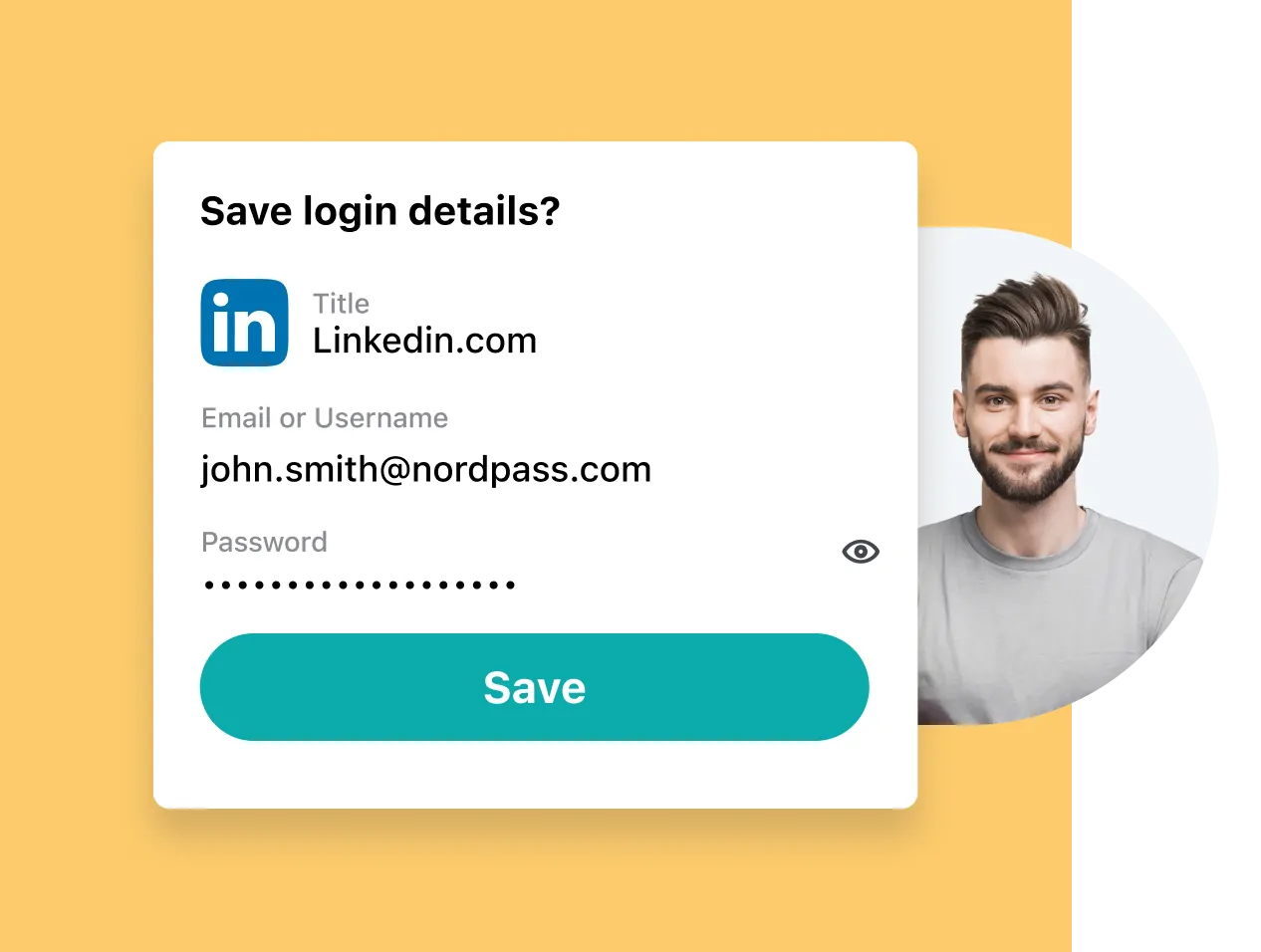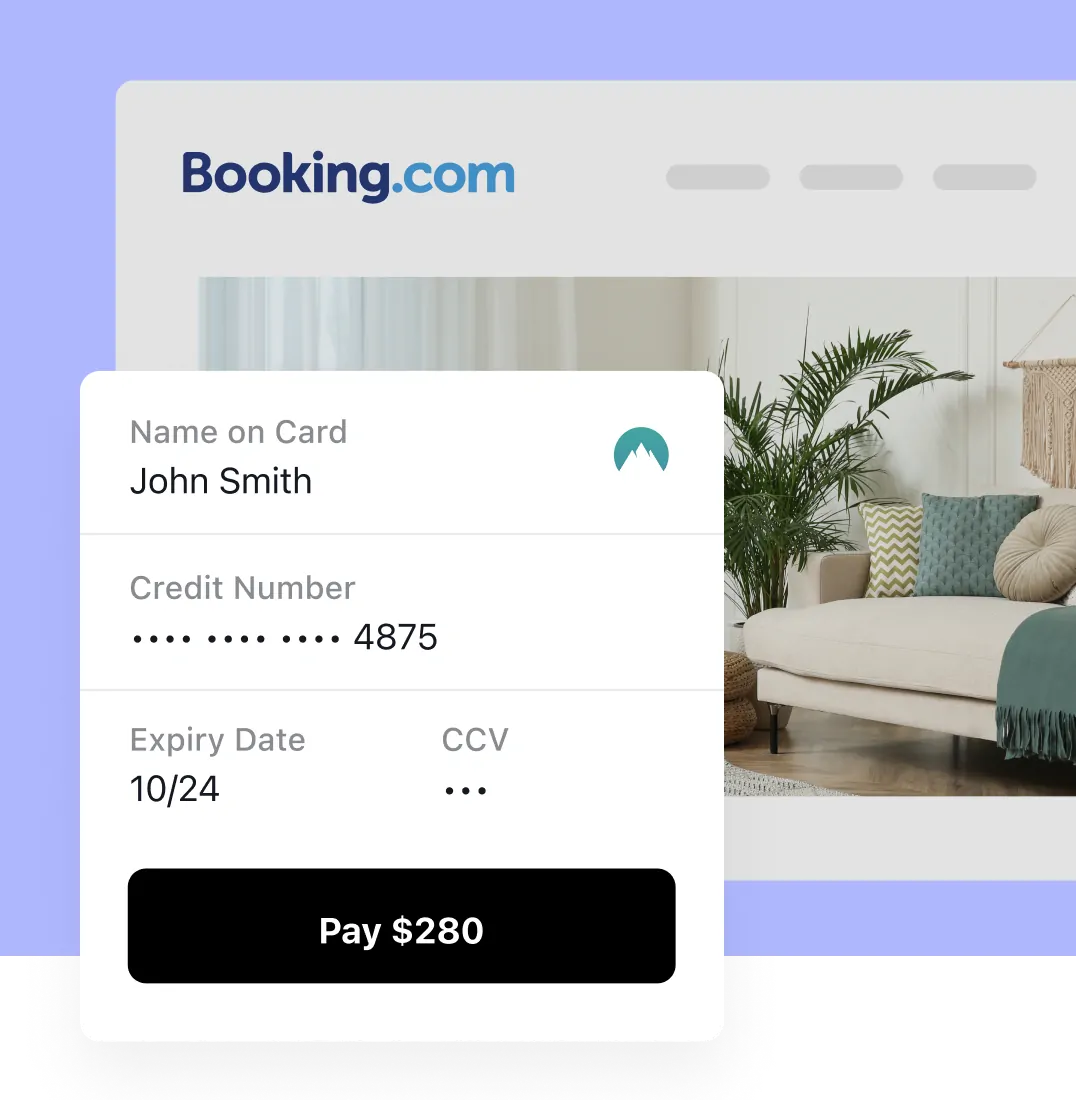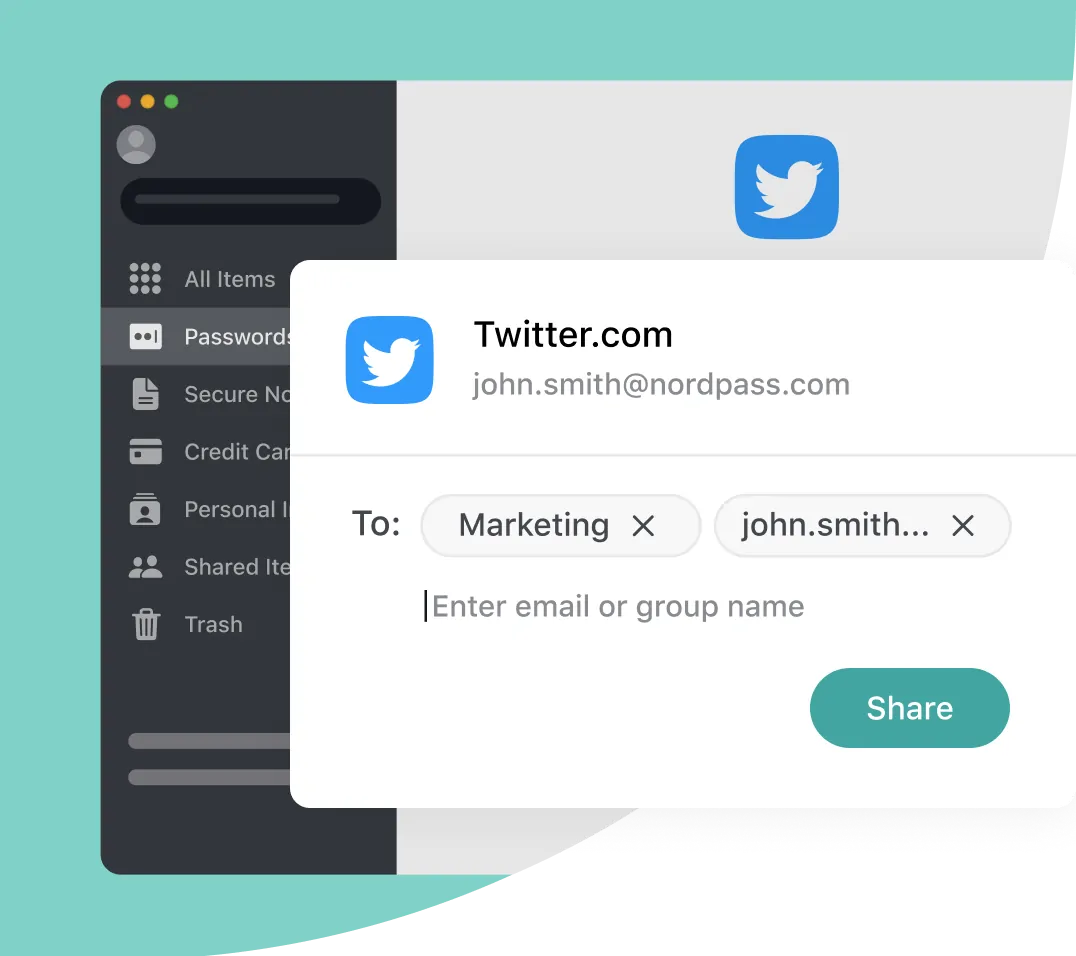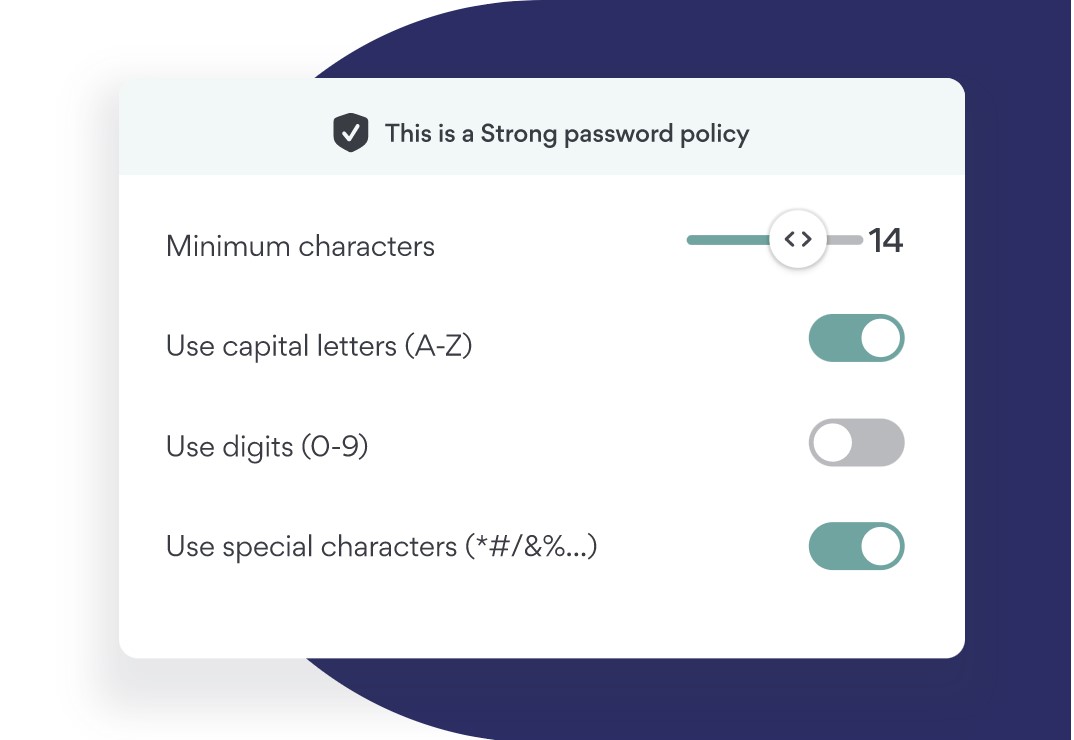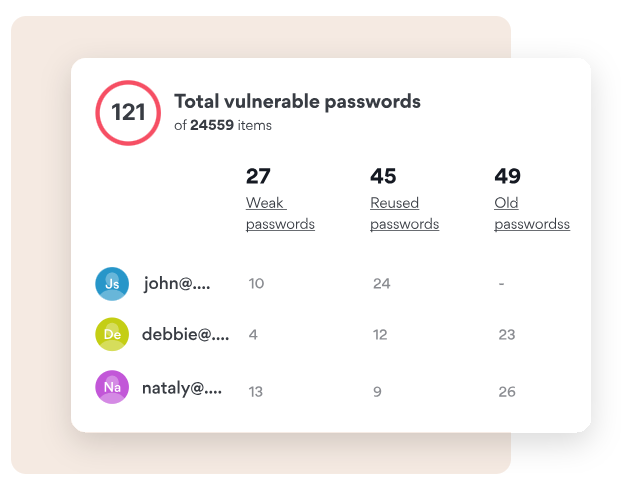70% of hacking-related breaches are caused by stolen and reused credentials.
Increase password complexity, avoid reusing passwords and stop playing the password memory game. Save your passwords and credit cards, share logins with co-workers, and check if your emails were breached.

